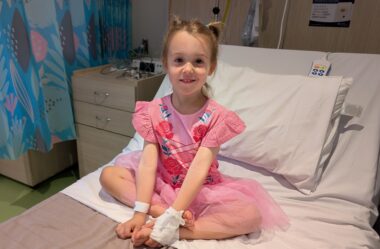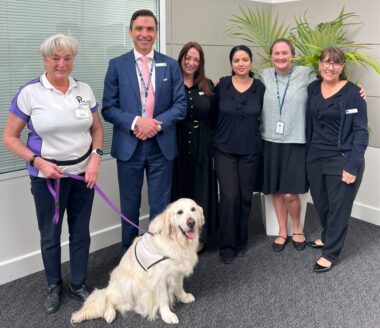As people age, they often worry about declining memory and other cognitive abilities. Many of them will see a doctor, who may do some tests to find out that they are functioning normally. This is generally referred to as subjective cognitive complaints (SCC). Previous research has shown that some of these individuals indeed progress to mild cognitive impairment and dementia when followed up over several years; however, the majority do not.
What determines whether someone develops subjective cognitive complaints? There are both genetic and environmental factors, which are not well understood. Twins are nature’s experiment to look at genetic vs environmental factors, and a recent research study did just that for subjective cognitive complaints.
The research led by UNSW Sydney’s Centre for Healthy Brain Ageing (CHeBA), and published in the Journal of Alzheimer’s disease, studied over 300 twin pairs from CHeBA’s Older Australian Twins Study with the aim of examining the correlations between these complaints and memory ability, and the influence of personality type and mood on these relationships.
Lead author Dr Amanda Selwood explained that some people have subjective cognitive complaints directly as a result of their personality, with a greater tendency towards negative thoughts or poor mood – even though their memory and thinking are normal for their age.
“In some other people, subjective cognitive complaints can indeed be a sign of true memory impairment and lead to dementia,” said Dr Selwood.
The researchers looked at whether the twin pairs had subjective cognitive complaints, how well they performed on memory tasks, their personality and their mood at the time.
“Twins are especially valuable for researchers, because identical twins share 100% of their genes, whereas non-identical twins share approximately 50%,” said Dr Selwood.
“Therefore, if identical twins are more likely to both have subjective cognitive complaints than non-identical twins, subjective cognitive complaints are likely to be determined by genetic factors.”
“However, if there is no difference in the similarity between identical and non-identical twins’ subjective cognitive complaints then we can ascertain that they are more likely to be caused by a shared environment.”
The findings indicated that subjective cognitive complaints are moderately heritable – meaning that these complaints are partly influenced by genetic factors. They also found that, when memory performance, mood and personality were factored in, these complaints were linked to memory performance via a genetic pathway and linked to mood via an environmental pathway.
“Personality appeared to affect subjective cognitive complaints via mood, rather than having a distinct influence of its own,” said Dr Selwood.
“However, memory performance, mood and personality only accounted for some of the genetic factors underlying subjective cognitive complaints.
“Also, we could not clearly differentiate between people who had subjective cognitive complaints due to poor memory performance, and people who had them due to poor mood.”
CHeBA Co-Director and senior author on the research, Professor Perminder Sachdev, said it was important for people to understand that memory concerns are not necessarily an early sign of impeding dementia and that much work is still needed to understand why subjective cognitive complaints occur.
“The take home message is that low mood is often a factor that should be attended to,” said Professor Sachdev. “It is also about attribution. Younger people with memory problems blame inattention and stress. Older people worry about impending dementia.”
Since 2007, the longitudinal Older Australian Twins Study has investigated the genetic and environmental contributions to healthy ageing, in particular ageing in the absence of brain dysfunction and disease, in twins aged 65 years and beyond.
Contact details:
Heidi Douglass, Centre for Healthy Brain Ageing, 0435 579 202



